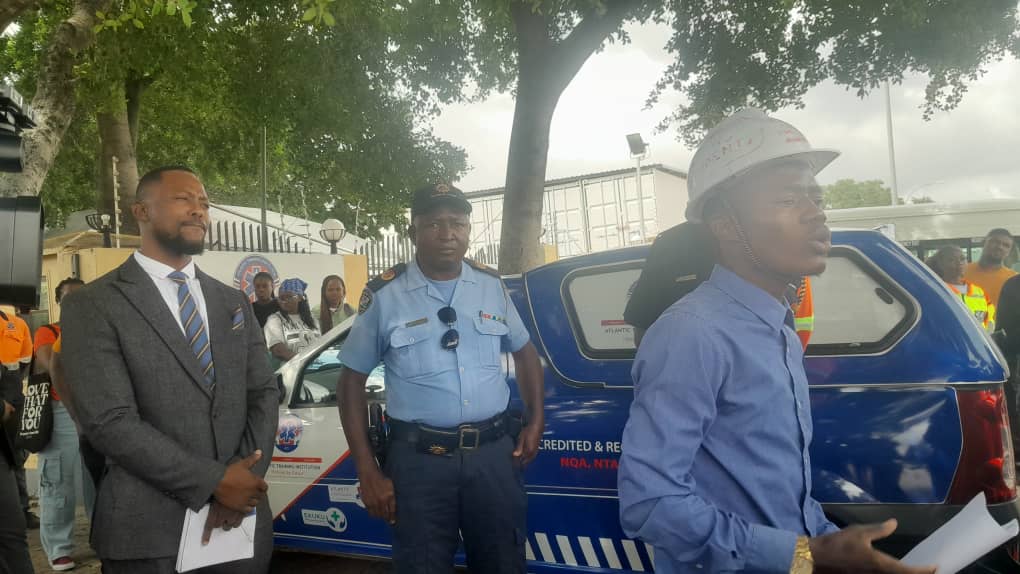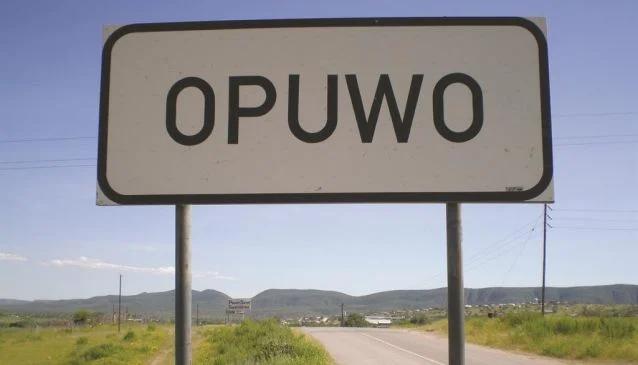THE issue of who qualifies to benefit from the proposed Veterans Bill again dominated the debate in Parliament on Tuesday.
Some opposition MPs felt that the bill should be broadened to include those who fought on both sides of the liberation struggle. Nora Schimming-Chase of the CoD asked whether civilians who remained in Namibia and supported the struggle, such as by giving food and shelter to freedom fighters, could also benefit from grants once the bill became a law.”What about medical doctors who had to abandon their practices for hours to testify in court on behalf of victims who suffered under SWATF or Koevoet? Will those who were forced to fight on the South African side also be accommodated? The way the bill is drafted, surely not,” Schimming-Chase criticised.She further stated that Swapo was not the only political movement fighting for Namibia’s freedom on the political, diplomatic or military fronts.Prime Minister Nahas Angula said in his contribution that if other political movements had seriously tried for official recognition as liberation movements internationally, they also would have received support.”Don’t blame others for your own weaknesses,” he said in the direction of Schimming-Chase.He hinted at the fact that back in the sixties, Swanu – mostly dominated by Herero-speakers – was also recognised internationally, but lost that status.Some contemporary historians say this happened due to infighting and others feel that Swapo deliberately “robbed” Swanu of that status.Nudo member Arnold Tjihuiko wanted to know from the Prime Minister whether the new bill was not an instrument of job creation for Swapo’s freedom fighters only.DTA Chairman Philemon Moongo demanded that those Swapo freedom fighters who were arrested and detained by Swapo during the liberation struggle should also benefit from the grants to be paid out once the new bill became law.”We were fighting at the front, but were suddenly arrested, detained and taken to Zambia by Peter Mueshihange (a Plan commander) and illegally brought to Tanzania and thrown into prison.Are you aware of that?” Moongo – a former Swapo member – angrily asked the Prime Minister, who declined to answer.Henk Mudge of the Republican Party then rose but was constantly interrupted from the Swapo benches.Mudge requested that the bill be amended to incorporate those who had fought on the South African side.”The grants the Swapo freedom fighters are to get is not Swapo money but money from the Government,” Mudge argued, hinting that taxpayers’ money would be used to exclusively pay Swapo freedom fighters.Deputy Justice Minister Utoni Nujoma informed Mudge that SWATF and Koevoet soldiers had earned salaries, while Swapo fighters “fought voluntarily and earned no money all those years.”Nora Schimming-Chase of the CoD asked whether civilians who remained in Namibia and supported the struggle, such as by giving food and shelter to freedom fighters, could also benefit from grants once the bill became a law.”What about medical doctors who had to abandon their practices for hours to testify in court on behalf of victims who suffered under SWATF or Koevoet? Will those who were forced to fight on the South African side also be accommodated? The way the bill is drafted, surely not,” Schimming-Chase criticised.She further stated that Swapo was not the only political movement fighting for Namibia’s freedom on the political, diplomatic or military fronts.Prime Minister Nahas Angula said in his contribution that if other political movements had seriously tried for official recognition as liberation movements internationally, they also would have received support.”Don’t blame others for your own weaknesses,” he said in the direction of Schimming-Chase.He hinted at the fact that back in the sixties, Swanu – mostly dominated by Herero-speakers – was also recognised internationally, but lost that status.Some contemporary historians say this happened due to infighting and others feel that Swapo deliberately “robbed” Swanu of that status.Nudo member Arnold Tjihuiko wanted to know from the Prime Minister whether the new bill was not an instrument of job creation for Swapo’s freedom fighters only.DTA Chairman Philemon Moongo demanded that those Swapo freedom fighters who were arrested and detained by Swapo during the liberation struggle should also benefit from the grants to be paid out once the new bill became law.”We were fighting at the front, but were suddenly arrested, detained and taken to Zambia by Peter Mueshihange (a Plan commander) and illegally brought to Tanzania and thrown into prison.Are you aware of that?” Moongo – a former Swapo member – angrily asked the Prime Minister, who declined to answer.Henk Mudge of the Republican Party then rose but was constantly interrupted from the Swapo benches.Mudge requested that the bill be amended to incorporate those who had fought on the South African side.”The grants the Swapo freedom fighters are to get is not Swapo money but money from the Government,” Mudge argued, hinting that taxpayers’ money would be used to exclusively pay Swapo freedom fighters.Deputy Justice Minister Utoni Nujoma informed Mudge that SWATF and Koevoet soldiers had earned salaries, while Swapo fighters “fought voluntarily and earned no money all those years.”
Stay informed with The Namibian – your source for credible journalism. Get in-depth reporting and opinions for
only N$85 a month. Invest in journalism, invest in democracy –
Subscribe Now!










